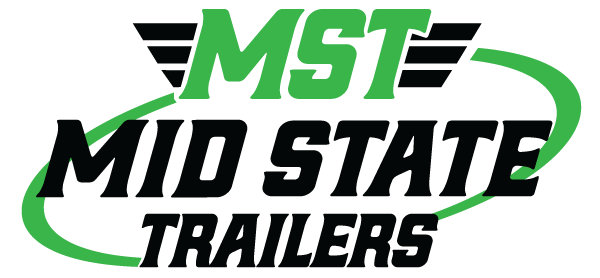Which Trailers Is Best for Your Cargo?
Are you gearing up for some hot shotting adventures or planning to haul heavy equipment across the country? Whether you’re a seasoned trucker, just dipping your toes into the world of towing, or a landscaper only looking to get raw materials from point A to point B, choosing the right trailer for your cargo can make all the difference. With a plethora of options out there, from gooseneck trailers to utility trailers, it’s essential to understand which one suits your needs best. So, buckle up! Here we’ll explore the world of trailers and find out which one is the perfect match for your hauling requirements and unique use case.

Hot Shot Trucking and Gooseneck Trailers
Let’s kick things off with hot shot trucking, a niche in the transportation industry where drivers haul smaller loads with quick turnaround times. If you’re diving into the world of hot shotting, a gooseneck trailer might just be your best buddy on the road. These trailers are known for their versatility and durability, making them ideal for hauling loads ranging from construction materials to industrial equipment.
With a gooseneck trailer, you can expect a higher weight capacity compared to conventional trailers, thanks to their unique hitch design that attaches to the truck in the middle of the bed. This feature allows for better weight distribution, making it easier to maneuver heavier loads with stability and control. This makes goosenecks one of the most popular trailer choice, especially among shipping contractors.

Ideal Towing for Heavy Equipment: Equipment Trailers
Now, let’s talk about hauling heavy equipment. Whether you’re transporting excavators, bulldozers, or other hefty machinery, an equipment trailer is your go-to option. These trailers are specifically designed to make the loading of equipment easier and to handle the weight and size of heavy equipment. Equipment trailers are often designed with the bed lower to the ground to facilitate easier loading.
When choosing an equipment trailer, pay attention to its Gross Vehicle Weight Rating (GVWR) to ensure it can accommodate your cargo safely. Additionally, look for features like ramps or tilt beds for easy loading and unloading, making the process smoother and more efficient.

Deckover vs. Utility Trailers: Finding the Right Fit
Next up, let’s compare deckover and utility trailers. Deckover trailers, also known as flatbed trailers, feature a flat deck that extends beyond and above the wheels, providing a wider loading area. These trailers are popular in industries such as construction and agriculture, where transporting large and bulky items is common. These trailers are particularly useful for cutting down on loading/unloading time, which can be crucial to keeping cost-efficient both on and off a job site. This is because they can be loaded/unloaded on all sides.
On the other hand, utility trailers are intended for lighter duty, come in a range of sizes, and are typically less expensive. Their standardized sizes often allow you to find a trailer in stock at both trailer dealers and big box stores. They’ve been known to be anything from disaster-response trailers used by organizations like FEMA, to prize booths you’ll find set up at the state fair. They’re perfect for hauling smaller equipment, tools, or even household items. Whether you’re moving furniture or towing ATVs for a weekend adventure, a utility trailer offers convenience and flexibility.

Farming Equipment Hauling Trailers: Heavy-Duty Gooseneck Trailers
If you’re in the business of transporting tractors or other agricultural machinery, a heavy-duty gooseneck trailer should be at the top of your list. These trailers are specifically designed to handle the weight and size of tractors, with reinforced frames and axles for added strength.
With a heavy-duty gooseneck trailer, you can safely transport your tractors from one location to another without worrying about stability or structural integrity. Plus, the aforementioned gooseneck hitch ensures a secure connection between the trailer and towing vehicle, allowing for smooth and reliable towing even over rough terrain.
Matching Trailers to Business Needs
Now, let’s talk about matching trailers to specific business needs. For example, landscaping companies often require trailers that can accommodate a variety of equipment, from lawnmowers to skid steers. In this case, a deckover trailer with ample loading space would be the ideal choice, allowing for efficient transportation of equipment and materials. Then again, an equipment trailer may prove a more efficient option, especially if you’re only hauling your tools of the trade and not any raw material.
On the other hand, if you’re in the business of transporting cars or other vehicles, a utility trailer with ramps or a tilt bed feature would be more suitable. This allows for easy loading and unloading of vehicles, saving time and effort during the transportation process and keeping your likely expensive cargo safe and secure.
How Choosing the Proper Trailer Impacts Safety
When it comes to towing, safety should always be a top priority. Choosing the right trailer for your cargo plays a significant role in ensuring a safe hauling experience for both you and other road users. Let’s delve into how the proper trailer selection can impact safety on the road.
